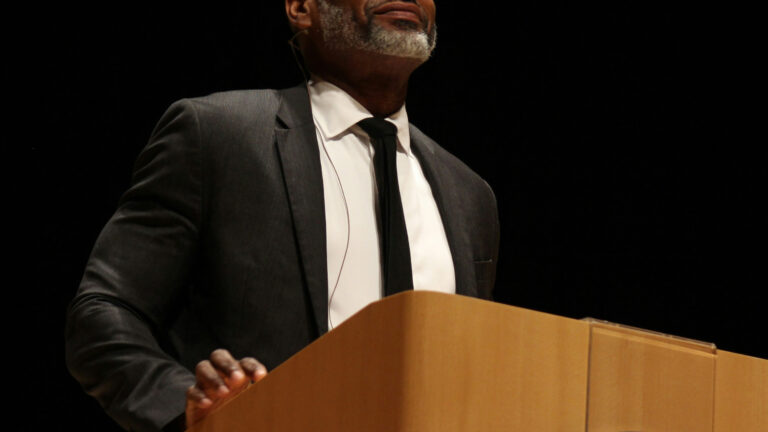The story is told of a religious man who was caught in a dreadful hurricane. He fetched his ladder and climbed onto the roof of his home. A neighbour rowed past in a canoe and offered him a seat. “No,” he said, “I’ve prayed, and I trust God will rescue me.” The water level rose further. A police boat passed and instructed him to get into their vessel. “No,” he insisted, again declaring his dependence on divine intervention. The water level rose further, so that the man had to perch himself on the apex of the roof. A rescue helicopter flew past, dropped a rope ladder, and yelled for him to climb. He called to them that his trust was in God, and reluctantly the pilot moved on. A short while later, he drowned.
Even the most religious can fail to recognise God’s providence in the hubbub of life.
When he arrived in heaven, he questioned why the Lord had allowed him to perish despite his deep faith. The Lord answered, “I sent you a canoe, a boat, and a helicopter. Why didn’t you get in?” This illustration provides a light-hearted perspective of irony and God’s active involvement in the affairs of humanity. Ironically, this devout man refused the various rescue offers because he wanted God to act miraculously. He then presumptuously questioned the Lord.
In the material, temporal realm, ‘God moves in a mysterious way, his wonders to perform.’ A profound irony is that even the most religious people in society can fail to recognise the divine hand of providence and redemption in the hubbub of life. In writing his Gospel, John used dramatic irony as a literary device to allow his readers to comprehend a metanarrative that the protagonist in the above story completely missed.
John’s Gospel: Irony and Sovereignty
An example of the juxtaposition of irony and sovereignty in John’s Gospel is the account of the event that transpired after Lazarus’ dramatic resurrection. Many Jews believed in Jesus following this supernatural sign, but some went to the Pharisees. As these religious leaders met in their council chambers, they had one item on their agenda: what they should do with the miracle worker from Galilee. Their profound concern was that their nation and temple were under threat because of the civil disturbance that Jesus was causing. Earlier in the same Gospel, after Jesus had fed over 5000 people, they wanted to make him king. Following the miraculous raising of Lazarus, the Pharisees believed Jesus’ following had reached a tipping point.
In the fullness of time, God determined that Jesus would be nailed to a wooden cross to liberate a people for himself.
During the Pharisees’ deliberations, Caiaphas, the high priest, rebuked the council, saying they didn’t understand what they were discussing (John 11:49). He then told them of a divine revelation that he had received. It spoke of redemption for all through the substitutionary death of one (John 18:14). It was, in a sense, the gospel in a nutshell. The deep irony is that Caiaphas did not understand the prophecy he had received. He interpreted it purely physically, with the perceived threat being the Roman chariots, swords, and spears. He saw Jesus as a scapegoat, not a saviour. Although the high priest was God’s messenger, he was a ‘dumb’ mouthpiece who failed to comprehend the revelation he proclaimed.
From that day forward, the Pharisees planned Jesus’ death. Caiaphas was plotting, Satan was scheming, Judas was on the slippery slope of betrayal, and the disciples were about to deny Jesus and go into hiding. This, too, was ironic for a cosmic drama planned before the foundation of the world was unfolding. They were unaware of what was taking place in the spiritual realm or that they were pawns doing the bidding of the almighty. It wasn’t ultimately the Jews who put Jesus on the cross, nor the Romans. Nor was it humanity’s sin. In the fullness of time, God determined that Jesus would be nailed to a wooden cross to liberate a people for himself and his glory.
Dramatic Irony Issues a Warning to Readers
The intertwining of irony and sovereignty yields the gospel. But not as it would have been composed had mortals crafted the narrative. God’s sovereign grace entered our time-space continuum in a rudimentary stable and had its zenith in a brutal crucifixion, followed by a bewildering resurrection. It was, however, not yet the right time in this drama, and Jesus withdrew to the wilderness. Before that fateful, glorious day at Golgotha, where darkness would cover the land from the sixth to the ninth hour, a few more events had to unfold.
It is possible to be extraordinarily pious and yet utterly lost.
If God worked so powerfully on the darkest day in history, he is undoubtedly alongside his children in our most arduous trials. Indeed, this was true of Martha, Lazarus’ sister. Amid her profound grief, before her brother emerged from the tomb, she proclaimed her sincere belief that Jesus was the promised Messiah (John 11:27). Ironically, even after Lazarus’ resurrection, which was a hint and glimpse of Christ’s impending superior resurrection, Caiaphas was more concerned about political stability than the inclination of his own heart.
It is, therefore, possible to hear (or even proclaim) the gospel and misunderstand it; to dedicate one’s life to outward religious behaviour, and be devoid of true spiritual life. It is possible to be extraordinarily pious and yet utterly lost. Was it not John Wesley, who before his conversion and remarkable ministry, confessed: “I went to America, to convert the Indians; but oh! who shall convert me?”?
The Pharisees clung to the security of the Roman army’s military strength. Their material, finite worldview didn’t allow them to comprehend the momentous battle raging for the hearts and minds of the Jewish nation and, ultimately, all humanity. The supreme spiritual struggle Jesus had descended into was against sin, Satan, and death. It would culminate in him crying out, “My God, my God, why have you forsaken me?” (Matthew 27:46). And subsequently, once the redemption price had been paid, he powerfully declared, “It is finished” (John 19:30).
Things Aren’t Always as They Appear
Are you passing through a time of suffering? Are you facing a significant challenge? Know this. As with Shadrach, Meshach and Abednego, the Lord is with you.
A tragedy can be the megaphone that rouses a dead soul to cry out in repentance.
When we look back on our lives, it will be manifestly evident that God works in all things for the ultimate spiritual good of those who love him and have been called according to his purpose. The joyous gift of adoption may replace the tears of infertility. Grief can be a schoolmaster that teaches us not to hold tightly to the things of this world and to contemplate the ultimate realities more deeply. The thorn in the flesh often points the struggling believer to the sufficiency of Christ. A loss or rejection causes another pilgrim to abide in the Rock of Ages. And a tragedy can be the megaphone that rouses a dead soul to cry out in repentance.
Joseph saw the irony in his own life. When he confronted his long-lost brothers he asserted that what they’d intended for evil God meant it for good (Genesis 50:19-20). The Lord compassionately works in our grief, anxieties, loneliness, failures, trials, losses, and sadnesses. We are called to trust and obey when it seems that God is far off. Take courage until faith becomes sight, for he has overcome the world. God is sovereign and in his hand is the life of every living thing. In the fullness of time, God will make all things clear.














